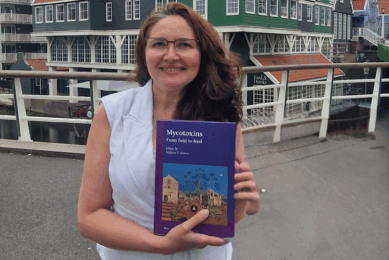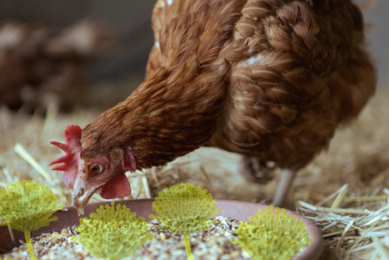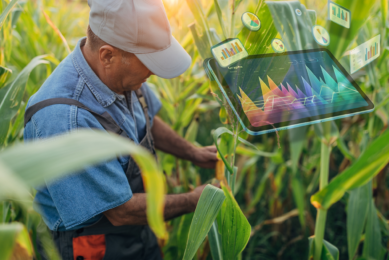Spanish livestock at risk for mycotoxins
An analysis among 90 raw material samples in Spain showed that mycotoxin contamination remains a significant problem. Corn resulted in being the most affected.
Biomin® GmbH has initiated the survey, which took place at the end of
2006. All tests have been conducted by Quantas Analytics – Austria, a company
specialized in mycotoxin analysis. Samples of raw materials were taken directly
at animal farms or animal feed producing sites.
Fusarium
toxins
The aim of this programme was to identify the contamination
level of certain Fusarium toxins and the co-occurrence of different types of
mycotoxins which are produced by different Fusarium species.
Fusarium
species occurring on cereals in the field are able to produce many types of
mycotoxins. The main groups of Fusarium toxins commonly recognized in grains are
trichothecenes, zearalenone, and fumonisins.
Corn most
affected
As the most commonly used feed ingredient, corn resulted in
being the most affected commodity. Corn accounts for 51% of all the commodities
tested, resulting in being positive for deoxynivalenol (DON 84%), zearalenone
(ZON 13%) and Fumonisin (23%).
Mycotoxin levels in barley all tested below limit of
determination (LOD) levels.20 wheat samples were analyzed and contamination in
wheat was at relatively low levels. No ZON were found in any sample tested. DON
accounted for 15% of the contamination (average 463 µg/kg).
Deactivate toxins
A lot of research has been done to
adsorb or deactivate these toxins in the intestinal tract of animals with
products that are directly mixed into the feed. It turned out that some
mycotoxins, like trichothecenes, cannot be adsorbed sufficiently. Thus,
enzymatic biotransformation to metabolites without pathogenic activity is the
only way to avoid their negative effects on animals. Only the combination of
different strategies will finally lead to success.
Related
website:
Biomin











